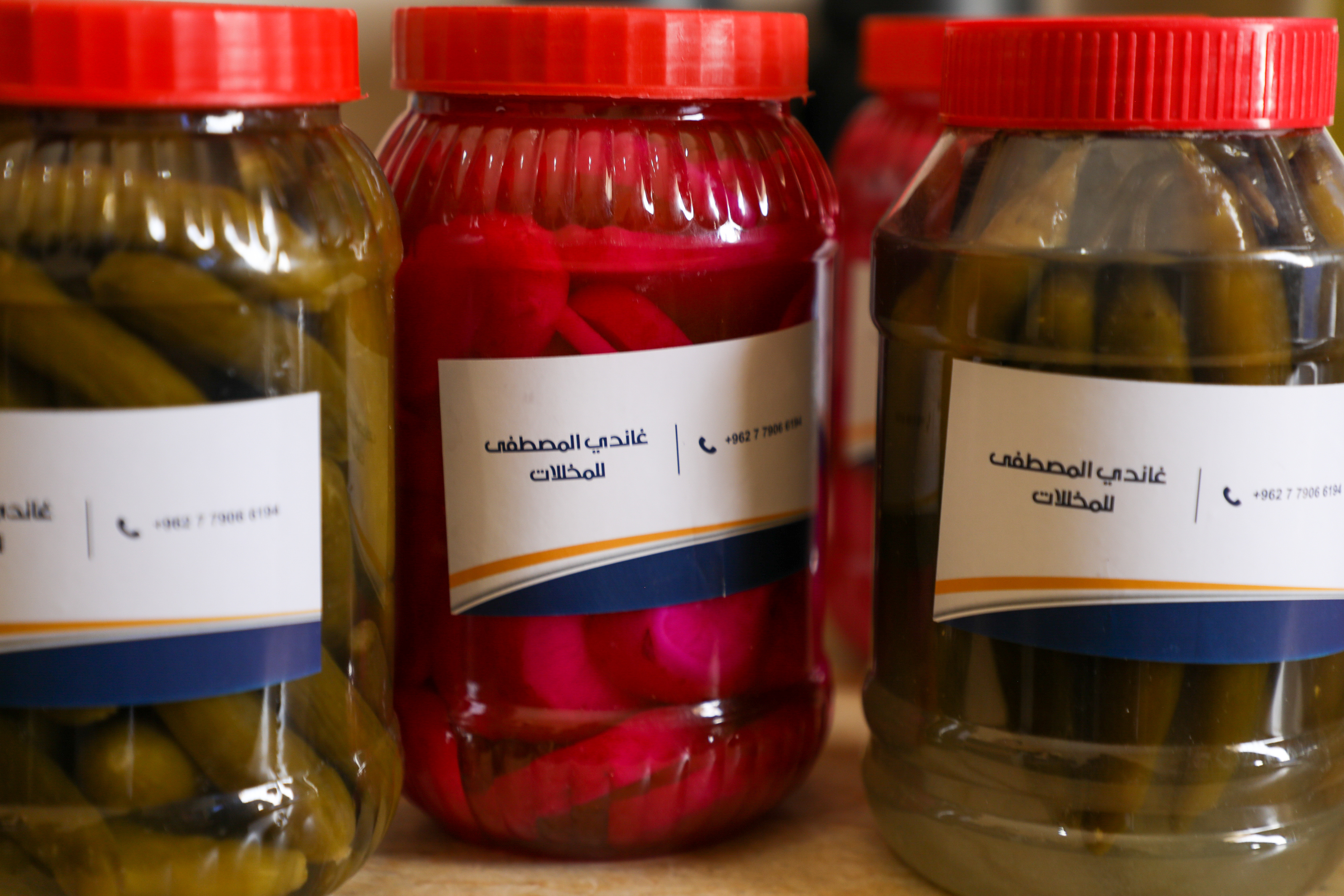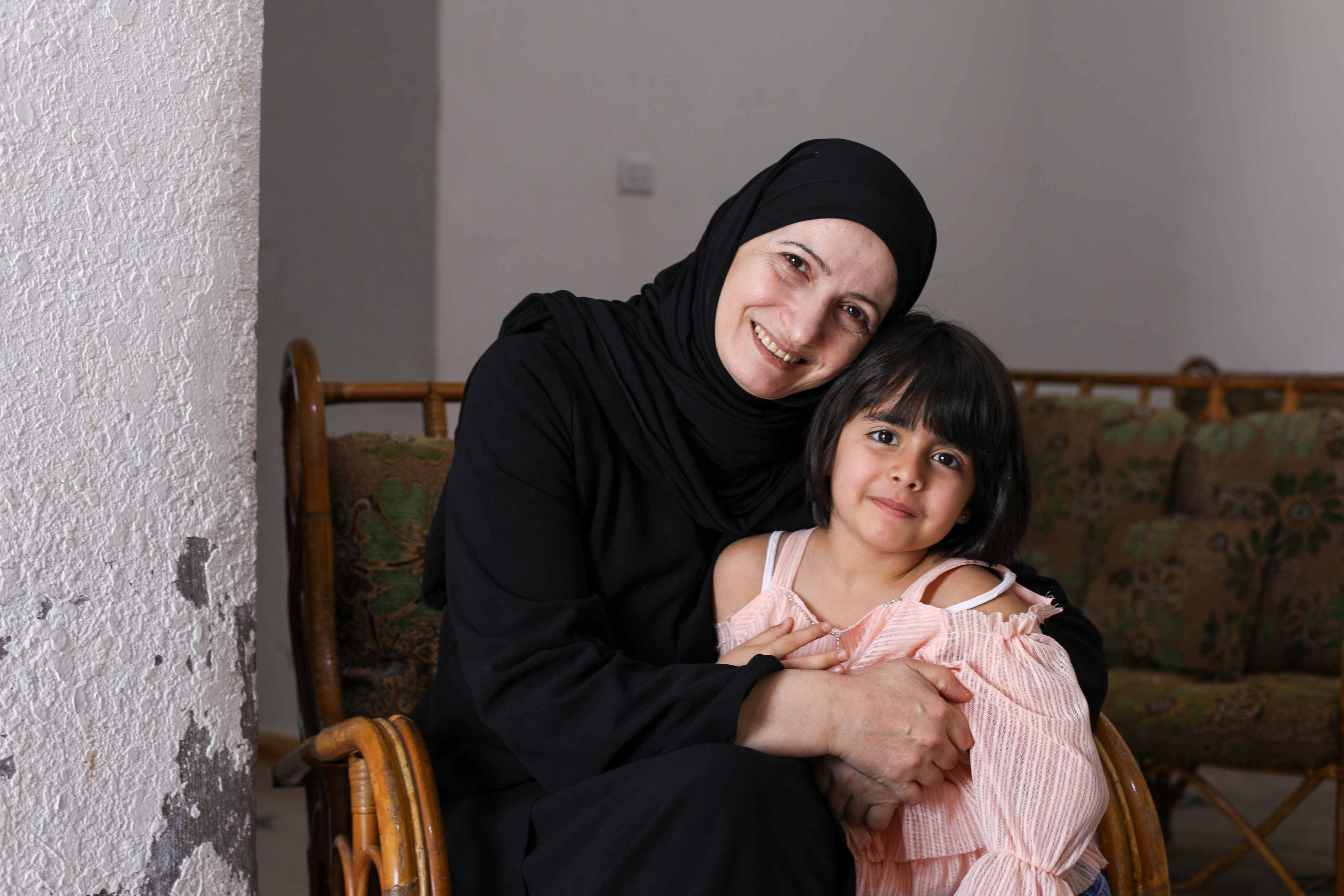Refugee entrepreneur finds hope despite COVID-19 pandemic

Refugee entrepreneur finds hope despite COVID-19 pandemic
This time last year, Ghada was depressed. Originally from Homs, she fled Syria and came to Mafraq, Jordan in 2013. As a single mother of five girls, she always struggled to make ends meet, even more so since she divorced from her husband in 2018. Then, in 2020, the COVID-19 pandemic came and hit hard. Schools were shut and Ghada’s work at a local community centre had also stopped as everyone had to stay at home. “I didn’t know how to survive. Our household expenses also increased because I had to pay for more internet and electricity for the girl’s education.”
But instead of letting the situation get the better of her, Ghada decided to fight back.
A keen home cook, Ghada had always made food for friends and neighbors. But after taking a training course offered by local NGO and UNHCR’s livelihood partner, Blumont, she was inspired to turn her passion into a business.
“I never though I would be able to make a business out of this. In our culture women are taught to cook from an early age. Back in Syria our kitchen was always hectic, it was the heart of the house. I remember every summer there would be continuous cooking of fresh produce to freeze for winter.”
Drawing on her heritage, Ghada started cooking traditional Syrian dishes to sell in the neighborhood. Makhdous (pickled aubergine), Yalangi (stuffed vine leaves) Kebbeh and different types of pickles all quickly became favorites for her customers. “I make the food others don’t have time to. But there is always a secret ingredient.”

Ghada makes a variety of pickles which she sells through word of mouth
Stemming from a decision by the Jordanian Government in November 2018 to support entrepreneurship, refugees can register home-based businesses in a range of fields from food production to artisanal handicrafts. Since then, UNHCR and Blumont have supported 222 projects – 56 of Syrian refugees and 166 for Jordanians – to legally start operating. In January 2021, Ghada finally received her official trading license from the Ministry of Labour.
Ghada now sees that the pandemic gave her an opportunity she wouldn’t have ordinarily had. “People stopped going to restaurants, they weren’t able to eat out and so turned to takeaway. This has been a benefit for me.”
And although her business is not yet at a stage where she can meet all of her expenses – Ghada still relies on monthly cash assistance from UNHCR to pay her rent – it has had a huge psychological effect.
“Before, my daughters and I were worried, we didn’t know what the next day would bring. But now I feel happy. People like my food and it gives me purpose. The pressure that I couldn’t provide anything for my family has gone. I can now buy things that are necessary for my children. I don’t have to rely on anyone.”

Ghada is pictured with her youngest daughter, Sham
With this renewed purpose Ghada now feels the future is brighter. She says she has found stability in Jordan and wants to continue to grow her business. This Ramadan, her orders have increased dramatically with customers from as far away as Amman and Ma’an buying her products.
“I hope one day I will be able to open my own kitchen. Expand beyond working from home and employ people.”

